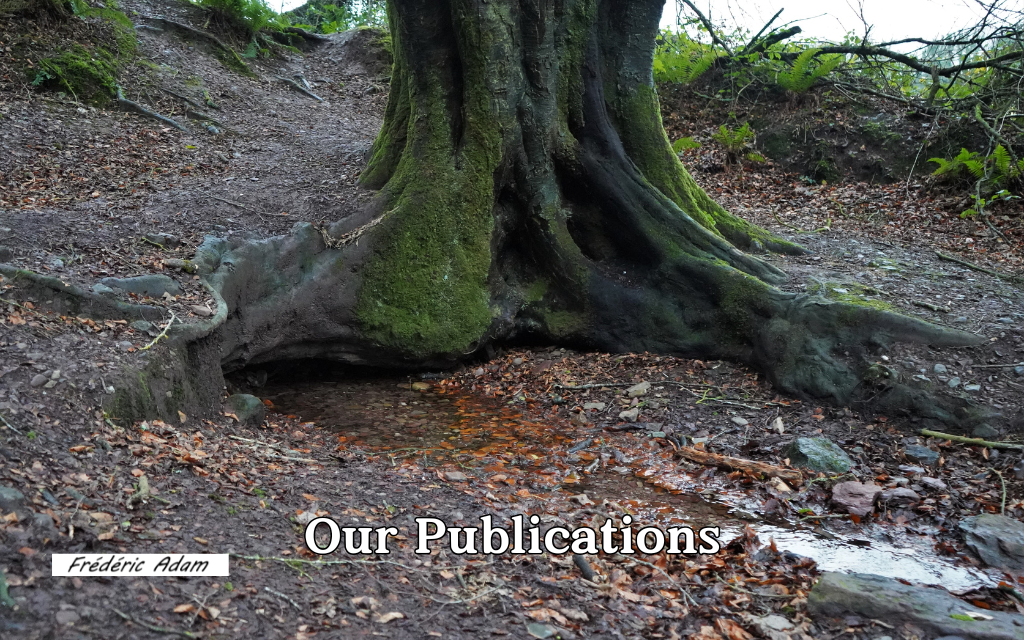Our Publications
Centre Publications
Browse featured publications linked to the themes of co-operatives in this section.
Where possible, full texts of publications are available as open access.
| Category | Category | Keywords | Year | Title | Abstract | Actions |
|---|---|---|---|---|---|---|
|
Book |
Book | cooperatives, competitive advantages, Ireland, economic cooperatives, credit union, agriculture, farming, agri co-op, dairy cooperative, social enterprises, community, community development | 2000 |
The Competitive Advantages of Co-operatives |
This book sets out to understand the competitive advantages of co-operatives in general and co-operatives in Ireland in particular. It explores the values and strategies of several of the main co-operative sectors in Ireland, including credit unions, agricultural co-operatives, community co-operatives, workers’ co-operatives and other social enterprises. It provides the interested reader with an introduction to the concept of the co-operative, its relevance in the age of globalisation and its many applications. It also outlines, with examples, the key competitive advantages of co-operative in general and discusses some of the special management issues faced by co-ops. It is designed as a companion volume to Abstract Co-Operatives of Ireland | More details Read publication |
|
Report |
Report | older people, care co-ops, housing, ageing | 2024 |
Supporting older people to age well at home: Assessing the potential of care co-operatives in Ireland |
More details Read publication | |
|
Journal Article |
Journal Article | Co-operative identity, Co-operative theory, Co-operative practice, Relationality | 2022 |
Understanding co-operative identity through relationality |
The kernel of co-operative identity is the ‘why’ and ‘how’ of social and economic integration in co-operatives. This paper discusses the limitations of economic and sociological theoretical frameworks in capturing the integrative and relational nature of co-operative identity. The author outlines how relational theory with its focus on emergence and its ability for integration may be a better fit with co-operative practice and hence the articulation of co-operative identity and theory. | More details Read publication |
|
Journal Article |
Journal Article | co-operative lifecycle; regeneration; relationality | 2023 |
Cooperative Lifecycle Framing—Reinvention or Regeneration and Does It Matter? |
The co-operative lifecycle framework has been a very useful concept in depicting the historical lifecycle of co-operatives. It is also particularly helpful in identifying and communicating if a co-operative is on a degenerative trajectory and points to the possibility of choice and re-invention. This paper focuses on this re-invention phase of the lifecycle framework and questions if re-invention is the best concept to use either in theory or practice. The paper explores whether regeneration may be a more promising concept, drawing on regenerative development and relationality literature. This paper concludes with an adaptation of Cook’s co-operative lifecycle framework by incorporating a regenerative enabling capability as a metric for success. | More details Read publication |
|
Journal Article |
Journal Article | Credit unions, Ownership, Relationality, Perceived openness and member openness | 2023 |
An exploration of the relationship between member openness and perceived organisational openness at a particular point in the co-operative lifecycle |
Co-operatives are essentially relational entities which are jointly co-created by members and the co-operative. This relational co-creation is particularly important in the founding years of the co-operative and at points of crisis and regeneration in the co-operative lifecycle. This paper explores the relationship between member openness towards relational engagement and their perception of the co-operative’s openness to that input (perceived openness) in a credit union context, prior to a major period of restructuring. | More details Read publication |
|
Report |
Report | 2022 |
Agri-Advisory Services: The role of Co-operatives |
Agri-advice has always been central to agricultural development and innovation. As agriculture is now facing an increasingly challenging and transitionary period, there is a renewed focus on the role and nature of agri-advice and AKIS (Agricultural Knowledge Innovation Systems). A transition to sustainable agriculture requires an agri-advisory response which draws on the agency and knowledge of the farmer(s), is more tailored to a particular local context and encourages the sharing of knowledge and experimentation across farms in a landscape1. This farmer-centric co-operative and landscape-based approach requires existing institutions within that landscape to facilitate and enable such knowledge brokerage. Co-operatives, with their proximity to the farmer and local embeddedness, would seem to be well placed to be key players in this future agri-advice domain. | More details Read publication | |
|
Journal Article |
Journal Article | consumer food waste; food-related actions; wider environmental behaviours; pro-environmental behaviours | 2023 |
Examining the Relationship between Consumers’ Food-Related Actions, Wider Pro-Environmental Behaviours, and Food Waste Frequency: A Case Study of the More Conscious Consumer |
The implications of food waste extend to the environment, society, and the economy. In the Global North, consumers’ food waste contributes significantly to the current global levels, with action and practice largely driving this contribution. The resulting policies largely centre around raising awareness amongst consumers. However, awareness is not always found to lead to action, resulting in what is termed the ‘value-action gap’. Thus, the focus of this study is on consumers who have demonstrated awareness and knowledge of food waste issues in their willingness to take part in a home food growing campaign. This sample allows us to examine how consumers can be moved beyond awareness and encouraged towards action. This study investigates the actions and practices of consumers that contribute to the likelihood of wasting food while also exploring the relationship between wider pro-environmental behaviour and food waste in the context of social practice theory. Quantitative analysis of survey data (n = 1106) shows that growing food and composting decrease the likelihood of wasting food, supporting a shift in mindset surrounding how food is viewed and reducing the disconnect between consumers and food that is prevalent in modern society. Overall engagement in wider pro-environmental behaviours was found to decrease an individual’s likelihood of wasting food. A layered policy approach with a practices perspective is suggested, with recommendations proposed for interventions and initiatives at individual, community, and broader societal levels. | More details Read publication |
|
Journal Article |
Journal Article | Agricultural Advisory Services; dairy co-operatives; landscape-based approaches; sustainable agriculture; J54; Q01; Q10 | 2024 |
Leveraging the potential of co-operative agri-advisory services in the transition to sustainable and landscape-based agriculture |
Agricultural Advisory Services (AAS) have always had a central role to play at each juncture in agricultural development and innovation. A transition to sustainable agriculture requires an agri-advisory response which draws on the agency and knowledge of the farmer(s), is more tailored to a particular local context and encourages the sharing of knowledge and experimentation across farms in a landscape. Co-operatives, as collaborative, farmer-owned and embedded entities, would seem to be well placed to play a greater role in this evolving agri-advisory space. However, there would seem to be little recognition of the current or potential role of co-operatives in agri-advice either in academic literature or policy discourse. This paper explores the current agri-advisory offering of Irish dairy co-operatives and their potential to offer an enhanced collaborative and landscape-based offering. It concludes that many of the elements are in place for such an approach but there is a greater need to leverage this potential, appreciate the benefits and enable a more farmer-centred and tailored agri-advisory orientation in co-operatives. | More details Read publication |
|
Report |
Report | Irish Menâ s Sheds Association (IMSA) , Social Inclusion , Sustainable Development Goals , (SDGs) , Wellbeing , Men's health , SDG Champion designation , Men's sheds , Sheds , Ireland | 2022 |
Men's sheds and the Sustainable Development Goals: Local responses to global challenges |
Purpose of the report: In 2019 the Irish Men’s Sheds Association (IMSA) was designated a Sustainable Development Goals (SDGs) Champion by the Republic of Ireland’s Minister for Communications, Climate Action and the Environment. This report evaluates the effectiveness of community-based men’s sheds on the island of Ireland as agents of social and environmental sustainability and identifies potential to develop this role. Recommendations are offered for consideration by men’s sheds across the island. As an academic study, the key novel contribution is the finding that men’s sheds in Ireland in addition to supporting social sustainability, are also already engaged in activities that support environmental sustainability. There is scope to further develop their role as champions of environmental sustainability in their communities. While men’s sheds have received significant attention from researchers interested in their role in health, wellbeing and social inclusion, their current and potential role in environmental sustainability has been largely absent from the academic literature on men’s sheds | More details Read publication |



